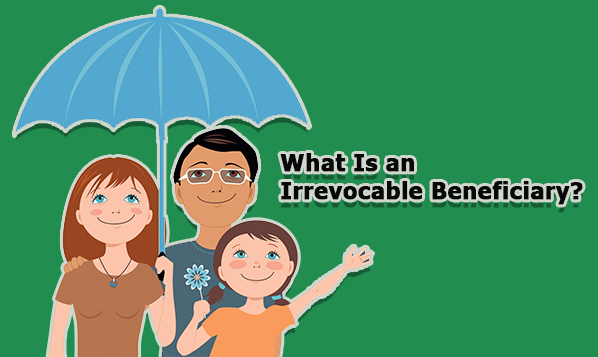As a policyholder, you can designate who will receive the death benefit when you die as a policyholder. However, not every beneficiary is considered the same. Designating an irrevocable beneficiary is a permanent decision, as their rights are fixed and cannot be altered without their awareness.

An irrevocable beneficiary is a person or organization selected to receive funds under a segregated fund and life insurance policy. The beneficiary’s status guarantees their future coverage, preventing any modifications without their consent and providing them with peace of mind. Understanding the implications of your insurance decision is crucial for ensuring it suits your needs, as it may significantly impact estate planning or legal agreements.
What to Know About Irrevocable Beneficiary
An irrevocable beneficiary has guaranteed assets under a life insurance or segregated fund. However, revocable beneficiary rights may be restricted or changed in some circumstances. When the insured dies, the policyholder may choose a revocable or irrevocable beneficiary to get the death benefits. It allows only changes to insurance payments with the beneficiary’s approval, and the insured cannot claim money after death.
For instance, an irrevocable beneficiary divorced spouse may still receive a payout. However, they must consent to policy changes before or after the insured’s death. Once named, the beneficiary cannot have their status changed by the insured. In some states, irrevocable beneficiaries can contest directly affecting issues, while in others, they can reject policy changes.
When to Consider an Irrevocable Beneficiary
In most situations, designating an irrevocable beneficiary is an important choice for financial stability. For example, a lender might be selected as the irrevocable beneficiary until the debt is paid off completely, especially if life insurance is used as collateral. This guarantees that the lender will get coverage payout to pay the outstanding loan if the borrower dies before the debt is paid off.
A spouse who lives with the family can be designated irrevocable which guarantees the availability of life insurance funds after the borrower’s death. Furthermore, understanding the financial and legal implications is crucial because changes can only be made with the beneficiary’s consent.
Why Would I Need an Irrevocable Beneficiary
Adding a beneficiary to your policy may seem stressful, but it may be the best solution, depending on your situation. The following are some instances of events and life adjustments that could support designating an irrevocable person:
- Signing a prenuptial agreement
- Divorce
- Remarriage
- Irrevocable Trust
Signing a prenuptial agreement
Life insurance plans are frequently mentioned when a prenuptial agreement is signed, and the prospective spouse may elect to be listed as an irrevocable beneficiary. In addition, these guarantees that even during a divorce, the death benefit payout will be available.
Divorce
If one parent is dependent on child support, a court may name you or your ex-spouse as irrevocable beneficiaries on the other person’s life insurance policy after a divorce. However, if their ex-spouse dies, this enables the parents to keep caring for their kids.
Remarriage
If a policyholder has been married more than once, they can designate a child as an irrevocable beneficiary. A stepparent cannot contest or alter the policy to receive life insurance death payments instead of their parent’s death.
Irrevocable Trust
Families frequently set up trusts to manage the eventual distribution of their assets. It is possible to add trusts and establish guidelines for their use, such as limitations or periodic payments. However, it’s impossible to alter an irrevocable trust without the beneficiary’s consent. Designating an irrevocable trust as the beneficiary of life insurance ensures that the payout is distributed upon the policyholder’s death, providing funds for a child’s education.
Advantages and disadvantages of an irrevocable beneficiary
There are benefits to designating an individual as an irreversible beneficiary. However, there are also disadvantages as well. Here is a summary of the main benefits and drawbacks you should review before choosing.
Advantages
- Makes difficult situations easier: Children from past or broken marriages can be protected by designating irrevocable beneficiaries.
- Legal and financial stability: In cases such as loan agreements or divorce settlements, irrevocable beneficiaries offer additional protection by guaranteeing that financial obligations are met.
- Peace of mind: Generally, you can feel stable and have peace of mind knowing that your beneficiary’s future is protected no matter how your life changes.
Disadvantages
- Limited flexibility: If your circumstances change after you designate an irrevocable beneficiary, you will no longer be able to make changes without their approval.
- Control restrictions: Without the irrevocable beneficiary’s consent, policyholders frequently have limited financial options, such as changing contingent beneficiaries or taking out a loan against the policy.
- Adjusting is difficult: Adding to the difficulties of changing the insurance is the potential for legal complications and the need for legal assistance when changing or removing an irrevocable beneficiary.
How to Choose an Irrevocable Beneficiary
After getting a life insurance policy and comparing quotes, consult your insurance agent to determine the best option for selecting an irrevocable beneficiary. First, confirm that you are aware of what an “irrevocable beneficiary” implies for the particular kind of coverage you need.
When you get a life insurance policy, your provider establishes a revocable beneficiary designation, unless you are told otherwise. Moreover, inform your insurance provider if you would like to choose an irrevocable beneficiary. It could be possible to add this beneficiary to an existing life insurance policy.

